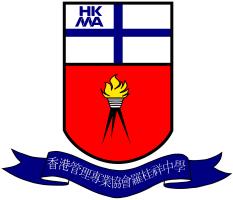| Language Policy |
The school is committed to improving students' English proficiency. Starting from the 2022 academic year, all subjects, except for Chinese Language, Chinese History, Citizenship, Economics and Society, and Moral and Civic Education, are taught in English for all S1 students. |
| Learning and Teaching Strategies |
1. In the learning and teaching process, we prioritize our students' interests. To enhance the effectiveness of classroom teaching, we have adopted cooperative learning across all subjects.<br>2. Beyond classroom teaching, we utilize various resources to promote all-round education. This is realised through activities such as S.1 education camps, senior-form Geography field trips, the JA Company Programme, senior-form Biology field trips, senior-form summer internship programmes, and the HKMA mentorship scheme.<br>3. At the junior secondary levels, the curriculum's core comprises Chinese Language, English Language, and Mathematics to provide students with a strong academic foundation. At the senior secondary levels, the curriculum is guided by two principles: increasing teaching hours and expanding learning opportunities. Extensive reading is integrated into the Chinese and English Language syllabuses, with an in-class English reading scheme being a key component. |
| School-based curriculum |
1. Electives: 2X and 3X. Our school provides senior-form students with the option to choose between 2-elective and 3-elective combinations.<br> 2. Curriculum highlights: A school-based curriculum is adopted for Computer Literacy, Design and Technology, Technology and Living, Visual Arts, IBS, and Civic Education in the junior forms to better cater to our students' learning needs. |
| Approach to Catering for Learner Diversity |
The Chinese, English, and Mathematics Departments have adopted small class teaching and learning modes to cater to the diverse learning needs of our students. A dual-class-teacher system has been implemented to better fulfil students' requirements. We have established a talent databank for students who have demonstrated potential in various areas. Students in the databank are offered extra training courses and are encouraged to participate in academic contests. Furthermore, we have formed the Students Supporting Team, which includes representatives from the Counseling Team, Academic Affairs Team, Social Worker Team, and the Chinese, English, and Mathematics Departments. This team is dedicated to providing assistance to students in need. |
| Approach to Integrated Education |
Our school is committed to creating an inclusive and caring campus. We adopt a whole-school approach to support students with special educational needs, providing them with appropriate and diversified support services to enhance their learning effectiveness and facilitate personal development. Our Student Support Committee, consisting of the Special Education Coordinator, Prefect of Studies, Head of Chinese, Head of English, Head of Mathematics, an educational psychologist, and a counselor, spearheads this initiative. We flexibly utilize the Learning Support Grant to recruit additional staff, including counselors, to assist students in various ways. In addition, students in need have access to external professional services, such as speech therapy services and social groups. We make special arrangements to assist these students with their studies, homework, tests, and examinations. They are also offered assessment sessions, referrals, and individual study programs. We place great emphasis on the cooperation between home and school. The Special Education Coordinator and counselor regularly communicate with parents to facilitate collaboration in student support. Our school is committed to fostering a caring culture, promoting understanding among students about special learning needs, and how to fulfill those needs appropriately. |
| Education Support for Non-Chinese Speaking (NCS) Students |
|
| Home-School Co-operation |
Guided by its motto - 'To Boost Cooperation Between Parents and Teachers in Promoting Student Growth', the Parent-Teacher Association has been established since December 1st, 1999. Aside from its Annual General Meeting (AGM), the association organises at least three activities involving parents, teachers, and students each academic year. These activities effectively enhance collaboration and communication between teachers and parents. |
| School Ethos |
Our school places significant emphasis on fostering self-discipline, care, and commitment among our students. |
| School Development Plan |
1. Enhance the English language abilities of students.<br>2. Foster the development of students' creative thinking skills.<br>3. Reinforce positive values and attitudes among students. |
| Teacher Professional Training and Development |
Our school is deeply committed to the professional development of teachers, and our development strategies include the following:<br>1. The Teacher Development Committee offers professional training activities, such as Teacher Development Days, training courses for both new and experienced teachers, as well as a range of internal and external training programs.<br>2. We organize specific training activities that align with the school's focus areas.<br>3. We actively encourage teachers to participate in training activities organized by the Education Bureau, Examination Authority, universities, and other external institutions.<br>4. We encourage our subject teams to participate in educational collaboration programs. These programs, organized by tertiary institutions and the Education Bureau, provide opportunities for teachers to learn through practical experience. |
| Life-wide Learning |
Academic Groups: Chinese, English, Mathematics, Business, Chinese History, Geography, Information Technology, Science, Citizenship and Social Development Club, Chinese Debate, English Debate, Academic Affairs Ambassadors, Visual Arts.<br>Interest Groups: Band, Choir, Drama, English Drama, Scrabble, Bridge, Chess, Christian Fellowship, Cooking Class, Guidance Ambassadors, Japanese Cultural Club, Library Club, Magic, Photography, Putonghua, Voluntary Team, Baking Club, Creative Media Club, Astronomy Club, STEAM Club, Transportation Club.<br>Physical Activities: Archery, Dance, Dodgebee, Badminton, Table Tennis, Thai Boxing, Basketball, Kinball, Volleyball, Beach Volleyball.<br>Uniformed Groups: Boy Scouts, Girl Guides, Flag Raising Team. |
